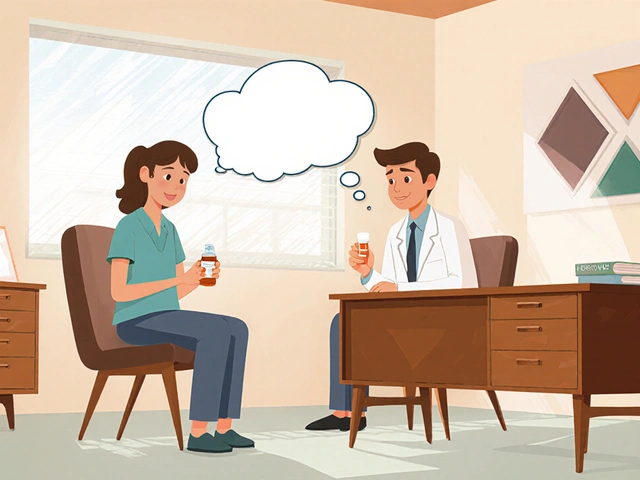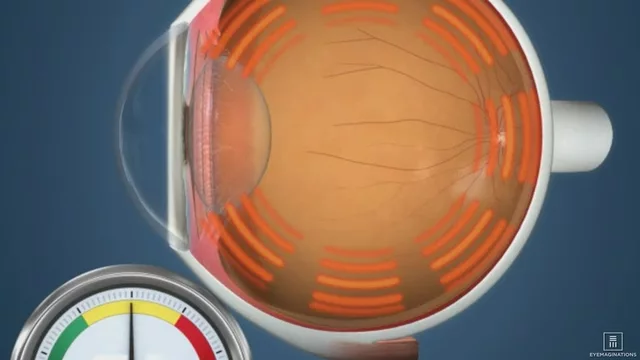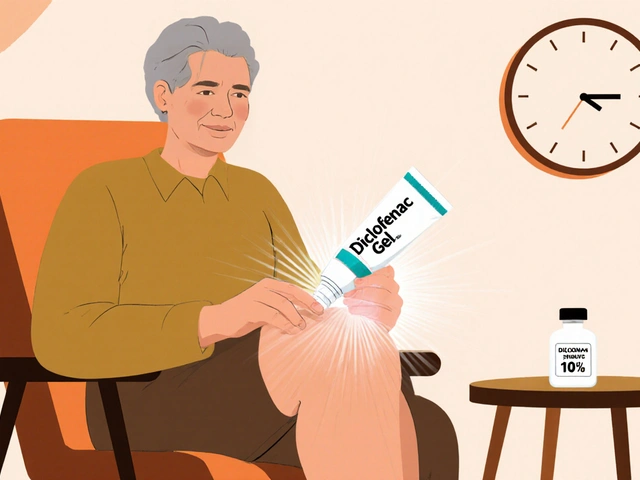Understanding Impotence: The Basics
Impotence, also known as erectile dysfunction, is a condition that affects millions of men around the world. It is characterized by the inability to develop or maintain an erection during sexual activity. Despite its prevalence, there are many misconceptions and stereotypes surrounding impotence that contribute to the stigma attached to it. In this section, we will discuss the basic facts about impotence, including its causes, symptoms, and treatment options.
Impotence can be caused by a variety of factors, including physical, psychological, and lifestyle factors. Some of the most common physical causes include heart disease, diabetes, and hormonal imbalances. Psychological factors that can contribute to impotence include stress, anxiety, and depression. Additionally, lifestyle factors such as smoking, excessive alcohol consumption, and obesity can also play a role in the development of impotence.
Dispelling Myths about Impotence
There are many myths and misconceptions about impotence that perpetuate the stigma surrounding this condition. One common myth is that impotence is a natural part of aging and cannot be treated. While it is true that the risk of impotence does increase with age, it is by no means an inevitable part of growing older. Many men continue to enjoy satisfying sex lives well into their later years, and there are numerous treatment options available for those who do experience impotence.
Another misconception about impotence is that it is solely a psychological issue. While psychological factors can contribute to impotence, they are not the sole cause. In fact, the majority of cases of impotence have a physical cause. It is crucial to consult with a healthcare professional to determine the underlying cause of impotence and to find the most appropriate treatment.
Addressing the Stigma and Shame Associated with Impotence
Men who experience impotence often feel a deep sense of shame and embarrassment, which can negatively impact their self-esteem and relationships. This shame is often perpetuated by societal pressures and stereotypes that equate masculinity with sexual prowess. In order to destigmatize impotence, it is important to challenge these harmful beliefs and recognize that experiencing impotence does not make a man any less masculine or worthy of love and intimacy.
Open communication with partners, friends, and healthcare professionals is an important step in breaking down the stigma surrounding impotence. By sharing experiences and information, men can begin to normalize the conversation around impotence and work towards a more accepting and supportive environment.
Support for Partners of Men with Impotence
Impotence can be a challenging experience not only for the men who experience it but also for their partners. It is common for partners to feel confused, frustrated, or even guilty when their partner is struggling with impotence. In order to support and maintain a healthy relationship, it is crucial for both partners to maintain open and honest communication about their feelings and needs.
Partners should also educate themselves about impotence and the various treatment options that are available. By understanding the causes and potential treatments for impotence, partners can help to alleviate some of the stress and anxiety that their partner may be experiencing and work together towards finding a solution.
Exploring Treatment Options for Impotence
There are numerous treatment options available for men who experience impotence, ranging from lifestyle changes to medications and medical interventions. Some of the most common treatment options include oral medications such as Viagra, Cialis, and Levitra, which work by increasing blood flow to the penis. Other treatments include vacuum erection devices, penile implants, and intraurethral suppositories. In some cases, psychological counseling may also be an effective treatment for impotence, particularly when the cause is primarily psychological in nature.
It is important to consult with a healthcare professional to determine the most appropriate treatment option for your specific situation. By discussing your symptoms, medical history, and lifestyle factors with your doctor, you can work together to find a treatment that will be both safe and effective for you.
Building a Supportive and Inclusive Community
Destigmatizing impotence requires a collective effort from both individuals and society as a whole. By educating ourselves and others about the realities of impotence, we can begin to break down the stereotypes and misconceptions that contribute to the shame and stigma surrounding this condition. Additionally, by fostering open and honest conversations about impotence, we can create a supportive and inclusive environment that encourages men to seek help and treatment without fear of judgment or ridicule.
Together, we can change the narrative around impotence and work towards a more understanding and compassionate society that recognizes the importance of sexual health and well-being for all individuals, regardless of their ability to achieve or maintain an erection.







Selma Cey
9 May 2023 - 21:05 PM
So let me get this straight - you're telling me that if I can't get it up, I'm not less of a man, but also that I should just go buy a pill? What a revolutionary concept. Next you'll tell me grief is just a phase and we should all take a vitamin for it.
Reality check: biology isn't a customer service ticket. You don't 'solve' impotence like you solve a Wi-Fi issue. And calling it 'erectile dysfunction' just makes it sound like a glitch in a robot's firmware. We're talking about a human being here, not a broken iPhone.
Francis Pascoe
10 May 2023 - 07:48 AM
I've been reading this whole thing and I'm just waiting for the part where they say 'just talk to your partner' like that's some magic wand. Bro, my ex left me because I couldn't perform. Not because I was 'stressed' or 'tired' - because she said I was 'emotionally unavailable.' And guess what? I was. But not because of my dick. Because I was ashamed of it.
So don't give me this 'open communication' fairy tale. When your partner looks at you like you're a disappointment wearing pants, talking doesn't fix that. It just makes you feel worse.
Richa Shukla
12 May 2023 - 04:09 AM
ok so i just read this and i think its all a big lie by big pharma 🤡
they made up impotence so we buy viagra and then we get addicted and then they sell us the next drug and then the next and then the penile implant and then the therapy and then the couples counseling and then the depression meds and then the divorce lawyer 💸
its all a scheme. your body just needs rest. and maybe less porn. and maybe stop watching tiktok before bed.
also i think the government is hiding the real cure. its in the amazon rainforest. or maybe its just garlic. i dont know. but its not pills. 🤫
Chris Rowe
13 May 2023 - 15:43 PM
Lmao. 'Impotence is common.' Yeah, and so is being broke. Doesn't mean we don't whisper about it at family dinners.
My uncle had it. Never talked about it. Just sat in his chair like a sad statue. Took 10 years before he admitted he was on meds. And when he did? We all pretended we didn't know.
So yeah. 'Destigmatize.' Cool. But nobody's gonna say 'hey, I got ED' at the BBQ. Not in this lifetime.
Sushmita S
15 May 2023 - 12:47 PM
I just wanted to say... this is so important 💔😭
My husband went through this and I didn't know how to help. I thought it was me. Turns out it was stress. And sleep. And maybe too much beer. But we talked. And now we're closer. Not because we fixed his body... but because we fixed our silence. ❤️
AnneMarie Carroll
16 May 2023 - 20:51 PM
Let me be blunt - this article is a feel-good pamphlet for people who don't want to deal with real medical systems. You say 'consult a doctor' like it's a recommendation, not a bureaucratic nightmare.
Have you tried getting insurance to cover a penile implant? Have you seen the waitlist for urologists? Have you ever been dismissed as 'just stressed' by a 65-year-old male doctor who thinks sex is a hobby for teenagers?
This isn't destigmatization - it's corporate wellness theater. Real change means systemic healthcare reform. Not another Instagram post with a heart emoji.
John K
16 May 2023 - 22:12 PM
USA is the only country that turns everything into a therapy session. You got a problem? Take a pill. You got a problem? Talk to your partner. You got a problem? Watch a TED talk.
Back in my day, you just sucked it up. Got a hard-on when you needed it. Didn't need a 10-page article telling you it's 'normal.'
Also, who wrote this? A 22-year-old grad student? Real men don't need to be told they're not broken. They just fix it. Or don't. Either way - no tears.
Laura Anderson
17 May 2023 - 11:24 AM
The irony here is that the very language used to destigmatize - 'erectile dysfunction,' 'treatment options,' 'medical intervention' - still frames the male body as a malfunctioning machine. We're not fixing a car. We're not upgrading software. We're talking about a deeply intimate, embodied experience that is shaped by trauma, culture, shame, and the quiet grief of aging.
And yet, the article offers solutions in bullet points. As if the soul can be diagnosed like a blood pressure reading.
The real stigma isn't the condition - it's the assumption that it can be solved with a prescription. The deeper wound is the silence around male vulnerability, and no amount of 'open communication' will heal that unless we stop treating men like problems to be fixed.
Avis Gilmer-McAlexander
18 May 2023 - 15:41 PM
I read this and I just… cried. Not because I’ve had it, but because I’ve seen the silence. My brother didn’t tell anyone for five years. He stopped going to family dinners. He stopped hugging people. He just… withdrew.
And when he finally opened up? It wasn’t about the pills. It was about the fear that he was unlovable. That his worth was tied to something his body couldn’t control.
Maybe the real treatment isn’t Viagra. Maybe it’s someone sitting with you in the dark and saying, ‘I’m still here.’ Even if nothing changes. Even if you’re still broken. Even if you’re still scared.
That’s the cure nobody sells. But it’s the one that lasts.
Jerry Erot
18 May 2023 - 23:00 PM
Actually, the article misses the point. Impotence isn't a medical condition - it's a social construct. The term itself is loaded with patriarchal baggage. 'Dysfunction' implies deviation from a norm that was invented by Victorian doctors to control male sexuality.
Historically, men were expected to perform regardless of fatigue, stress, or emotional state. The modern 'treatment' industry simply repackages this expectation as 'health.'
Real progress would be dismantling the idea that sexual performance equals masculinity - not offering more pills.
ANTHONY SANCHEZ RAMOS
18 May 2023 - 23:28 PM
bro i had this for like 2 years and it sucked 😩
but then i started walking 30 mins a day and stopped scrolling doomscrolling before bed and i swear to god it got better. not perfect. but better.
also i told my gf and she said 'dude i just want you to be happy' and that was it. no pressure. no drama. just us.
you guys are overcomplicating this. its not a war. its just your body saying 'hey maybe chill for a sec' 🙏💪